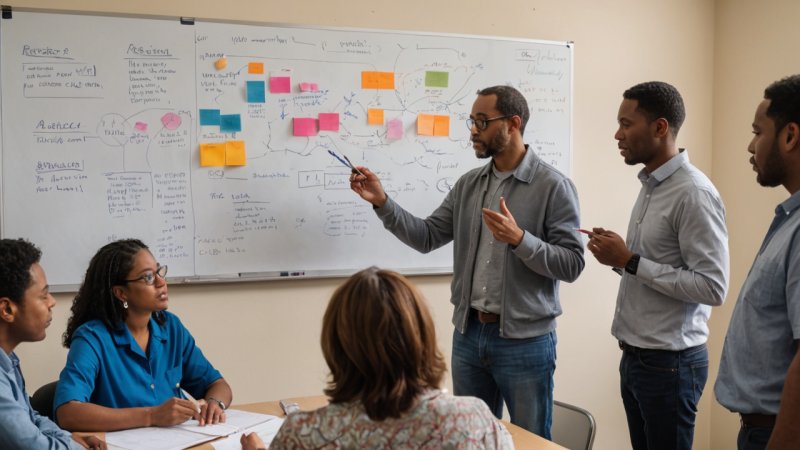What is Community-Based Participatory Research (CBPR)?
Community-Based Participatory Research (CBPR) is a collaborative approach to research that involves community members, organizational representatives, and researchers in all aspects of the research process. This method ensures that the research is relevant to the community's needs and that the community has a voice in the research outcomes.
Why is CBPR important?
CBPR is important because it promotes equity in research by empowering communities. It helps build trust between researchers and community members, leading to more effective interventions and solutions that are tailored to the specific needs of the community.
How does CBPR differ from traditional research methods?
Unlike traditional research methods, which often involve researchers working independently of the community, CBPR emphasizes collaboration. In CBPR, community members are actively involved in the research process, from identifying the research question to disseminating the results. This approach fosters mutual respect and shared decision-making.
What are some key principles of CBPR?
- Co-learning: Researchers and community members learn from each other throughout the research process.
- Empowerment: The process aims to empower community members by involving them in decision-making.
- Action-oriented: The research is designed to bring about change and improve community health and well-being.
- Reciprocity: There is a mutual benefit for both researchers and community members.
Can you provide examples of successful CBPR projects?
Yes! One notable example is the Community Health Workers for COVID Response and Resilient Communities project, which engaged community health workers to address the health disparities exacerbated by the pandemic. Another example is the Healthy Eating and Active Living initiative, which involved community members in creating local policies that promote healthier lifestyles.
What challenges are associated with CBPR?
Some challenges of CBPR include time constraints, differing priorities between researchers and community members, and potential power imbalances. It requires ongoing communication and commitment from all parties to navigate these challenges successfully.
How can communities get involved in CBPR?
Communities can get involved in CBPR by reaching out to local universities or research institutions to express interest in collaboration. They can also participate in community meetings or forums where research needs are discussed, ensuring their voices are heard.
What role do funders play in CBPR?
Funders play a crucial role in supporting CBPR initiatives by providing the necessary resources for collaboration, training, and community engagement. They can help facilitate partnerships between researchers and community organizations and promote the importance of equitable research practices.
How can researchers ensure ethical standards are upheld in CBPR?
Researchers can ensure ethical standards are upheld in CBPR by obtaining informed consent from community participants, maintaining transparency throughout the research process, and respecting the community's cultural values and norms. Regular communication and feedback loops can help build trust and ensure ethical considerations are prioritized.
What is the future of CBPR?
The future of CBPR looks promising as more researchers recognize the value of community engagement in addressing complex health and social issues. As funding bodies increasingly support collaborative research, we can expect to see more innovative and impactful projects that benefit communities.






